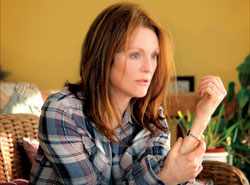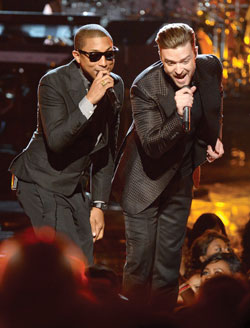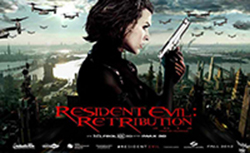The University was host to Robert Pinsky and his accompanying musicians, Steve Cardenas and Ben Allison, on Friday, Feb. 15 at 7:30 pm. Dozens of people, local and otherwise, gathered to see Pinsky perform his renowned poetry to impromptu jazz. He was available for book signings after the show.
Pinsky, a three-time United States Poet Laureate, had dedicated his life to bringing a dynamic, invigorating focus to the spread of the love of poetry. He has published numerous books of poetry, including An Invitation to Poetry and The Figured Wheel: New and Collected Poems 1966-1996. The latter received the Lenore Marshall Award and the Ambassador Book Award of the English Speaking Union. He also published a translation of The Inferno of Dante that received the Los Angeles Times Book Award in poetry and the Howard Morton Landon prize for translation. Pinsky has written one prose book, The Life of David, which retells the biblical stories of David.
Pinsky is also the poetry editor for Slate, a teacher in the graduate writing program at Boston University, and has appeared on “The Simpsons.”
Having grown up in Long Branch, many wondered as to how many of Pinsky’s poems reflect his life in the local shore town. “All of my poems are about Long Branch,” he laughed.
The bassist for the evening, Ben Allison, is known for his ingenious sounds and unique melodic style. Through the groups The Ben Allison Band, Man Size Safe, Peace Pipe and Medicine Wheel, Allison has traveled the world and performed in many distinct venues. In recent years alone, he has been on stage at Carnegie Hall, Teatro Manzoni, The Capitol Theater, and Queen Elizabeth Hall.
Guitarist Steve Cardenas has performed and recorded with many esteemed musician and groups, including the Paul Motian Electric Bebop Band and Killer Joey. He is a member of the Charlie Haden Liberation Music Orchestra as well as the Ben Allison band. In addition, he is on the faculty at The New School for Jazz and Contemporary Music in New York City and has been a member of various other institutions in the past.
The evening opened with an introduction from Michael Thomas, Assistant Dean of the Department of Humanities and Social Sciences, who began with a reading of one of his own poems. “I wrote that poem attempting to understand the relationship of poems to jazz,” Thomas explained before noting his regard for Pinsky’s take on the subject. “In great art, there is no resolution, no conclusion, only the ever-expanding consciousness of our own imagination,” Thomas said.
This launched the audience into several different recitals, some of which were light and thoughtful, others of which were dark and gritty.
The first selection was “Antique,” which was set to slow, foreboding instrumentals. Filled with lines such as “we lived together for hours in a house of a thousand rooms” and “the waters of anonymity and the acids of breath,” repeated for emphasis in ways that were not in his original poem, this first ‘song’ set the mood for an interesting show.
Between the first and second selections, Pinsky said, “The cliché of a dream come true is true for me, especially being here.”
The following two poems, “Street Music” and “Creole,” were both heavily inspired by his Long Branch roots, featuring detailed descriptions of the local mom-and-pop stores, the impoverished areas, corruption and death. The tempo began to race through the more tense portions, mimicking the panicked, desperate feeling of his words.
The following “Samurai Song,” “The Hearts,” “Improvisation on Yiddish” and “Rhyme” were also personal, but about more specific areas of his life. “Samurai Song” was about steeling ones’ self to deal with the pains of life, during which Allison had a brief solo that mimicked traditional Shamisen riffs (the Shamisen is a traditional Japanese three-stringed guitar). “The Hearts” romanticized the existence of a piano, the pumps and strings of which symbolized those of the epididymis organ. “Improvisation on Yiddish” featured snippets of Yiddish, as the name implies, and how the interaction of the two languages he grew up with both exposed and concealed certain workings of the world. The final piece, “Rhyme,” was a much lighter poem, bearing a spiritual and contemplative nature, describing the cyclical world of the poet.
Following the show, the audience was able to engage in a brief Q&A session with the performers. When asked about the recent urban developments in Long Branch, Pinsky was sentimental but accepting. “It’s better than nothing, and we went through a period of nothing,” he said. He went on to say that, though he’d miss the wonderful locations he grew up with, such change was a fact of life.
When questioned about how spontaneity of their performance, Allison gave a wry smile. “Musically, of course, we’re completely improvising everything,” he said. “We’re trying to spontaneously make new forms. We just wing it.”
Elizabeth Rimassa, a graduate student pursuing an MBA, enjoyed having Pinsky perform. “It’s really cool that this is a notable figure,” Rimassa said.
Perhaps the best synopsis of the event could be from Pinsky himself, when an audience member asked about his poetic roots. “I never sorta set out to become a poet,” Pinsky grinned. “I had a tic of thinking about the sounds of words- it turns out there’s an art based on it.”



